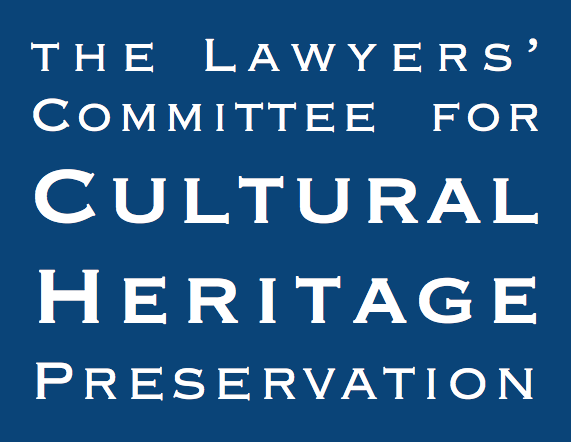 Heritage experts from government, academia and NGOs came together in Washington on April 17 at a workshop and public seminar to explore possible solutions to the critical issues surrounding protection of heritage in times of conflict. The conference, titled “Cultural Heritage: Conflict and Reconciliation” was held at the Smithsonian Castle and the Freer Gallery of Art and co-hosted by the Smithsonian and University of Chicago’s Cultural Policy Center.
Heritage experts from government, academia and NGOs came together in Washington on April 17 at a workshop and public seminar to explore possible solutions to the critical issues surrounding protection of heritage in times of conflict. The conference, titled “Cultural Heritage: Conflict and Reconciliation” was held at the Smithsonian Castle and the Freer Gallery of Art and co-hosted by the Smithsonian and University of Chicago’s Cultural Policy Center. The speakers identified concerns related to how best to work with the role of the military and law enforcement during times of conflict, how best to define the scope of illicit trafficking, and how best to coordinate among the three pillars of government, academia and NGOs in order to promote cooperation, not competition. While many of issues surfaced, no clear path was decided upon for moving forward and encouraging greater cooperation.
In the public portion of the program, David Rubenstein, co-founder of the Carlyle Group and Regent of the Smithsonian, moderated a distinguished panel including the event’s host, Smithsonian Under Secretary Richard Kurin, Mounir Bouchenaki, Director of the Arab Regional Centre for World Heritage, Emily Rafferty, President of the Metropolitan Museum of Art, and George Papagiannis, the U.S. Representative of UNESCO.
The panelists all agree that the field is facing a crisis with the destruction and looting of heritage sites in the Middle East by extremists. And while action needs to be taken, it is a challenge even for major global organizations to help during times of active conflict. The discussion can be viewed here.
The interview was followed by a moderated discussion of the day’s themes that included Gil Stein, Director of the Oriental Institute at the University of Chicago, Maria Kouroupas, State Department Director of the Cultural Heritage Center, Patty Gerstenblith, Distinguished Professor of Law at DePaul University, Bill Ivey, former head of the National Endowment of the Arts and China Liaison for the American Folklore Society and Deborah Lehr, Chairman of the Antiquities Coalition. The moderator was Rob Albro, a Research Associate Professor at American University and Washington DC representative of the University of Chicago Cultural Policy Center.
The discussions focused on two key questions: is there a growing awareness of the need to protect heritage and how can we establish a better policy mechanism in the US to promote greater interagency cooperation and international outreach to address this growing challenge?
Overall, the discussants agreed that with the advent of extremism in the Middle East and the subsequent attacks against cultural heritage, there was increased awareness among policy makers internationally and the general public about antiquities looting, trafficking and destruction. There is still a need for those in the heritage field to come together to develop strategies of how best to support countries during times of crisis, and certainly how to execute those strategies.
The Antiquities Coalition (AC) was honored to be part of the overall discussion. Its themes provide an excellent foundation for an upcoming event hosted by the AC in Cairo. In cooperation with the Arab Republic of Egypt, The Middle East Institute, and UNESCO, the Antiquities Coalition will be co-hosting a conference in Cairo addressing “Culture Under Threat” May 13-14, 2015. You can find more information about the conference HERE. The Antiquities Coalition is dedicated to finding solutions to the threats of looting, trafficking and destruction that are facing cultural heritage today.


